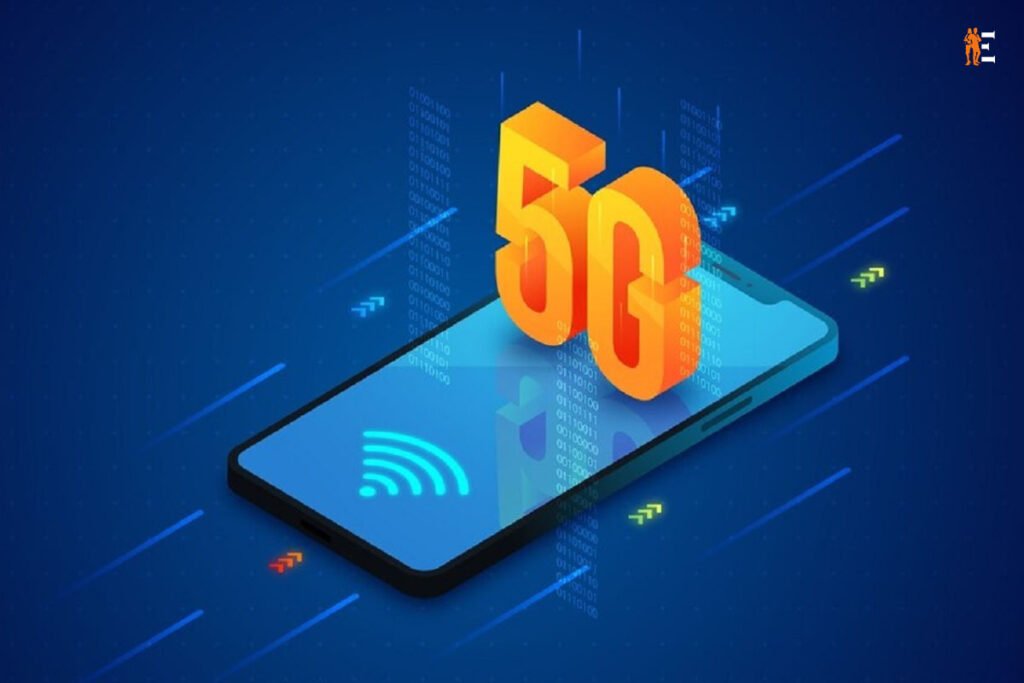More than two hundred years have passed since the beginning of the Industrial Revolution, which was the impetus behind the beginning of the mechanized manufacturing sector and the introduction of mass-produced items to the market with the assistance of manufacturing IT solutions.
Now, with the advent of impacts of 5G on manufacturing operations, the industry is about to undergo its most significant shift to yet.
Smart factories are going to become commonplace as a result of the fourth Industrial Revolution, more commonly referred to as “Industry 4.0.” These future factories are filled with interconnected machines that are able to perceive their surroundings, collaborate with one another, and make choices without any central authority. Many people believe that the fundamental capabilities of next-generation impacts of 5G on manufacturing operations improve networks which will be crucial to the success of this revolution.
Discussions on Industry 4.0 often center on the need of having infrastructure that is both flexible and fluid. The producers of the devices that will be used in the factories of the future are becoming aware that they will need to be able to rapidly modify the networks that link those devices and be able to freely reconfigure those networks.
Here are 4 impacts of 5G on manufacturing operations:
1. New capabilities at the network edge
Last but not least, impacts of 5G on manufacturing operations will make it possible for manufacturers to move additional functionality closer to the network’s edge.
In the past, it was not conceivable for equipment to interact wirelessly with back-end systems for time-critical tasks; however, due to the great dependability of this network technology and the low latency it has, it is now viable to do so.

This will be the first time that rapid production-line operations and the power of networked intelligence have been combined in this way.
New capabilities, such as enhanced image recognition, will likely be developed with the help of deep learning neural networks hosted on the cloud. These developments are imminent. This will enable robotic systems to do visual quality control inspections of items in real time, with a high degree of precision, for the purpose of quality control.
2. Improved Remote Support
Because of the lower latency, a broad variety of crucial use cases will soon be able to benefit from remote help, which was previously impossible to do. The process of remote work, including the operation of equipment off-site and the analysis of data, will become much more streamlined. The distinction between remote and on-site help will become less clear as speeds increase since excellent service will no longer be dependent on location.
The impacts of 5G on manufacturing operations network will bring internet speeds to a whole new level. The connectivity will increase, which will contribute to the improved efficiency of the plant’s operations. The implementation of 5G Improve Manufacturing Operation will make a variety of mobile jobs simpler, including monitoring inventories and providing remote help. Nevertheless, these quicker speeds might bring about an increase in the threats to one’s safety.
3. Unifying the supply chain

Because they will bring together the whole supply chain, these “smart factories” will bring about an even greater change in the production process. The first stages of the industrial revolution were driven by human labor and steam power; later on, silicon and software were the primary driving forces. The network will be the source of electricity for the fourth wave.
4. Collecting information
The collection of information about operational matters is the first of these issues. In the future, networks will create an enormous amount of information because of their continued growth and increased intelligence. Producing actionable intelligence that boosts production might be a possibility for manufacturers that are able to collect and analyze the aforementioned data.
This ever-increasing data flow may be supported by 5G’s characteristics, which include low latency and high bandwidth. In addition to boosting throughput, data analysis may also assist in cutting down on unplanned downtime. Sensors that are linked to 5G networks may provide real-time information on the performance of machinery, including data on vibration and noise levels.
When combined with algorithms for machine learning, this information may assist businesses in predicting when costly pieces of equipment are ready to break, hence lowering the risk of costly downtime.

When the network notifies us in advance that a certain piece of specialist equipment has to be repaired, augmented reality made possible by low-latency 5G-enabled headsets will allow personnel to work more quickly and effectively. Level 1 technicians are able to travel to a site and have engineers at headquarters guide them through the repair process remotely via 5G networks, using context-sensitive 3D animations to walk them through the necessary steps. This can be done while the engineers are guiding the technicians through the process.
BOTTOM LINE
5G will bring about a revolutionary shift in mobile technology and will be a game-changer for the business world.impacts of 5G on manufacturing operations has the potential to fundamentally revolutionize the commercial sector, from the production of businesses to the more active workforce.
Even if the nationwide rollout of 5G networks for manufacturing may be a few years away, planning has to begin right now if we want to have the most fruitful environment possible in place. We need to put the technology through its paces, investigate new avenues open to experimentation and product creation, create flexible regulatory frameworks, and provide financial incentives to enterprises in order to encourage them to construct the workforce and infrastructure of the future.
It will be great to witness another step toward the implementation of impacts of 5G on manufacturing operations in British manufacturing in 2020, since this promises to be a brighter and more productive future for British manufacturing on the global arena.











